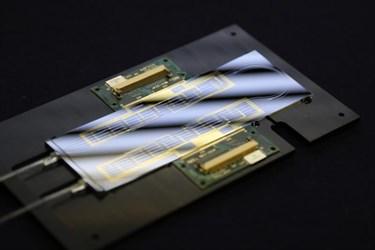Researchers from the University of Bristol and NTT in Japan have developed an optical chip that can process photons in an infinite number of ways. According to the team, the fully reprogrammable chip marks a ‘new era of research’ for scientists and engineers at the cutting edge of quantum technologies.
Dr Anthony Laing, who led the project, said: “A whole field of research has essentially been put onto a single optical chip that is easily controlled. The implications of the work go beyond the huge resource savings. Now anybody can run their own experiments with photons, much like they operate any other piece of software on a computer. They no longer need to convince a physicist to … painstakingly build and conduct a new experiment.”
The team demonstrated the chip’s capabilities by reprogramming it to perform a number of experiments, each of which would previously have taken many months to build.
Bristol PhD student Jacques Carolan, one of the researchers, added: “Once we wrote the code for each circuit, it took seconds to reprogram the chip and milliseconds for the chip to switch to the new experiment. We carried out a year’s worth of experiments in a matter of hours. What we’re really excited about is using these chips to discover new science that we haven’t even thought of yet.”
– See more at: http://www.newelectronics.co.uk/electronics-news/fully-reprogrammable-optical-chip-developed-at-bristol/88478#sthash.S6FPHUOX.dpuf
For more detail: Fully reprogrammable optical chip developed by Bristol University team

